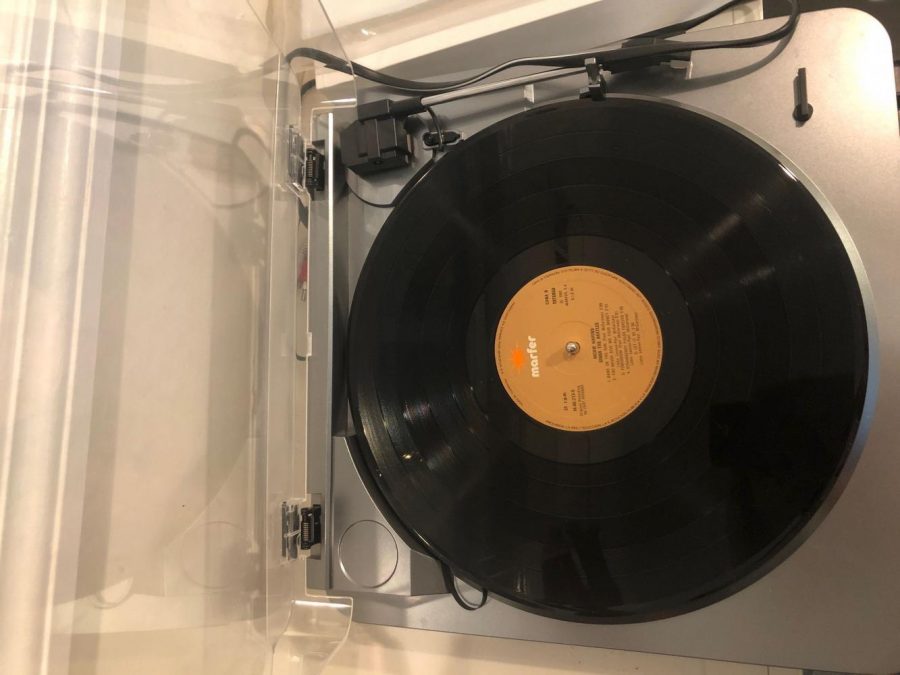After 20 years of musical wizardry, famed record shop Other Music shut its doors in 2016. With their latest documentary, Rob Hatch-Miller and Puloma Basu memorialize its magic, speaking to the wonder of creating communities and manifesting physical meaning by way of a mere geographical space. The closing of Other Music represented the death of a community, a distancing from reality and a retreat to a lonely world where consumers are more trusting of their Spotify algorithms than random record shop recommendations. With Record Store Day being delayed from April 18th to June 20th due to the outbreak of COVID-19, newly rendered documentary “Other Music” offers music aficionados a glimpse into simpler times. A time where rummaging through record sleeves for that elusive record that would change your life remained a reality and talking to the random melophiles around you brought an unprecedented amount of excitement into your life.
Tracking the full history of Other Music at the corner of East 4th Street and Lafayette through a series of interviews, archival footage and animated sequences that mirror the store’s devotion towards the democratic displaying of music, Hatch-Miller and Basu compose a loving ode to a community-landmark that came and went like a firecracker’s flare. Interviews ranging from employees who worked the storefront to a myriad of musicians who fell in love with the shop over the years tesselate into a mosaic rendering of Other Music’s history. It’s all on display: struggles, victories, trivial tidbits, emotional oomph and musical vibrancy. Hatch-Miller and Basu hold nothing back, putting forth a documentary that operates like an authentic eulogy for a locale that yearned to be immortalized.
Serving as the stomping ground for members of Animal Collective, acting as the purveyor of Benicio Del Toro’s preferred records, representing Le Tigre’s JD Samson’s personal heaven and Jason Schwartzman’s musical mecca, Other Music transcended its status as just another record shop, representing a different approach to music — a whole new way of looking at and engaging with it.
“That was like how [Jeff Gibson, co-owner of Other Music] would always describe what he was into, to like his parents, friends, like you know, I listen to Other Music, it’s something else you know,” Josh Madell, co-owner of Other Music, proclaims about how the name came about.
That’s what it was: “something else.” Other Music was a labyrinth for those who sought to get lost and swept away by a barrage of tunes they couldn’t find elsewhere. Hatch-Miller and Basu make an effort to highlight the aforementioned. Their choice to stitch together footage of record-junkies shuffling in-and-out of the store against passionate disquisitions on what made the place so unique, soundtracking the history of Other Music with the music it helped make famous and integrating old concert footage of acts like Neutral Milk Hotel and Vampire Weekend that took place at the store, makes it impossible to not fall in love with the ghost of the locale. By the time Hatch-Miller and Basu have acquainted you with every employee and square inch of the store, and unveiled just about the strangest concert footage of Gary Wilson you’ll ever see — and that’s saying a lot — a smile is bound to consume your face. Only then is when their genius apexes.
In the blink of an eye, the tune changes from disco to debt and the relationships between the clerks and the audience that Hatch-Miller and Basu have spent the entire film building up begin to crumble. Faces start vanishing and the sight of their disappearance evokes the emotional distress of losing a friend and a community. The sorrow of destabilization and debt swallow the film whole, steamrolling it forward towards its finale.
The noble rise and tragic fall of Other Music are built into the duo’s documentary. They dictate its acceleration from smiles to tears, providing the narrative framework for a work of remembrance concerned with the loss of landmarks but wholly aware of the sacrifices New York City demands for fluxional advancement. Nothing is sacred in New York real estate, but at least Hatch-Miller and Basu’s cinematic cadence hopes to transcend the trappings of time by putting forth a definitive and painterly picture of what Other Music was, what it represented and how it stills resonates in the music we continue to listen today.
If you miss going to your local record shop and sifting through sleeve after sleeve until you find the original pressing, the aesthetics of early 2000s indie rock or listening to Animal Collective, you can proceed to rent the film at Factory 25’s website until Thursday, April 30. Every rental fee will go directly to a record shop of your choice, supplying them with a small dose of monetary assistance to get them through these uncertain times and granting you the ability to engage with their personality, even if it’s only on a digital platform.
A version of this article appeared in the Monday, April 27, 2020 e-print edition. Email Nicolas Pedrero-Setzer at [email protected].

























































































































































